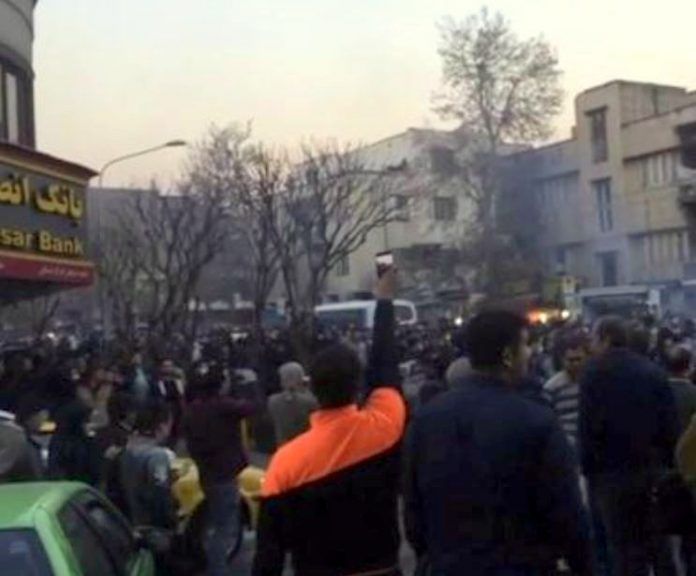Hojatollah Ali Khorshidi, the chief prosecutor for Estahban County in the southern province of Fars, has called for harsher punishments against those arrested during the recent nationwide civil unrest, the Center for Human Rights in Iran said.
Speaking at Friday prayers on February 23, Khorshidi said: “The Judiciary cannot arrest thousands of protesters. It will, however, deal decisively with the offenders. Prison authorities carry out floggings every day. They will also amputate the hands of four prisoners soon.”
Khorshidi noted: “The hijab is not a new phenomenon. It is an integral part of our Islamic tradition which cannot be easily uprooted.” He called on worshipers at Friday prayers to be more proactive in countering protesters. “The Judiciary is not supposed to deal with these issues. Why are you silent? Why don’t you express your support for the revolution? Do you expect the Judiciary to take care of everything? Many of you have access to social media. Use your WhatsApp and Instagram channels to make your views known. Fulfill your responsibilities towards the revolution,” he said.
“Many of our dear sisters and good people in the province filed a petition with the prosecutor’s office,” he explained. “They asked for a permit to stage a march on the issue of the hijab. But I asked the prosecutor’s office to arrest anyone who marched because some agitators would inevitably exploit the event. We didn’t think the timing was right for a demonstration.”
“We have issued arrest warrants for two people who have disseminated materials on social media. We are not sitting idly, but we also don’t announce everything we do,” Khorshidi noted. “We have been decisive in our dealings with the offenders. Authorities will amputate the hands of four people soon. The honorable prosecutor is trying to decide whether the punishments will be carried out in prison or public. We are indebted to the Islamic Revolutionary Guards Corps (IRGC) for arresting those who have sprayed slogans on walls. Their cases have been referred to the prosecutor’s office in Shiraz.”
Khorshidi warned that his office would not issue a permit for any gatherings, marches, or demonstrations. He said: “This is a public safety issue. We don’t want any shop windows broken or motorcycles set on fire.” He reminded the worshipers that “offenders are flogged in prison every day.”
Khorshidi’s remarks drew sharp criticism from Mahmoud Amiri-Moqaddam, a human rights activist. “The authorities in Iran aim to discourage civil disobedience through the use of corporal punishment, including public flogging and amputation,” he said. “We ask the international community to demand that Iran abandon these cruel and inhumane medieval practices.”


